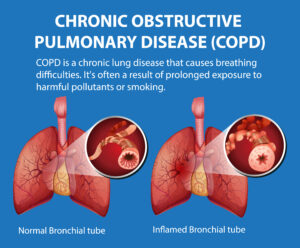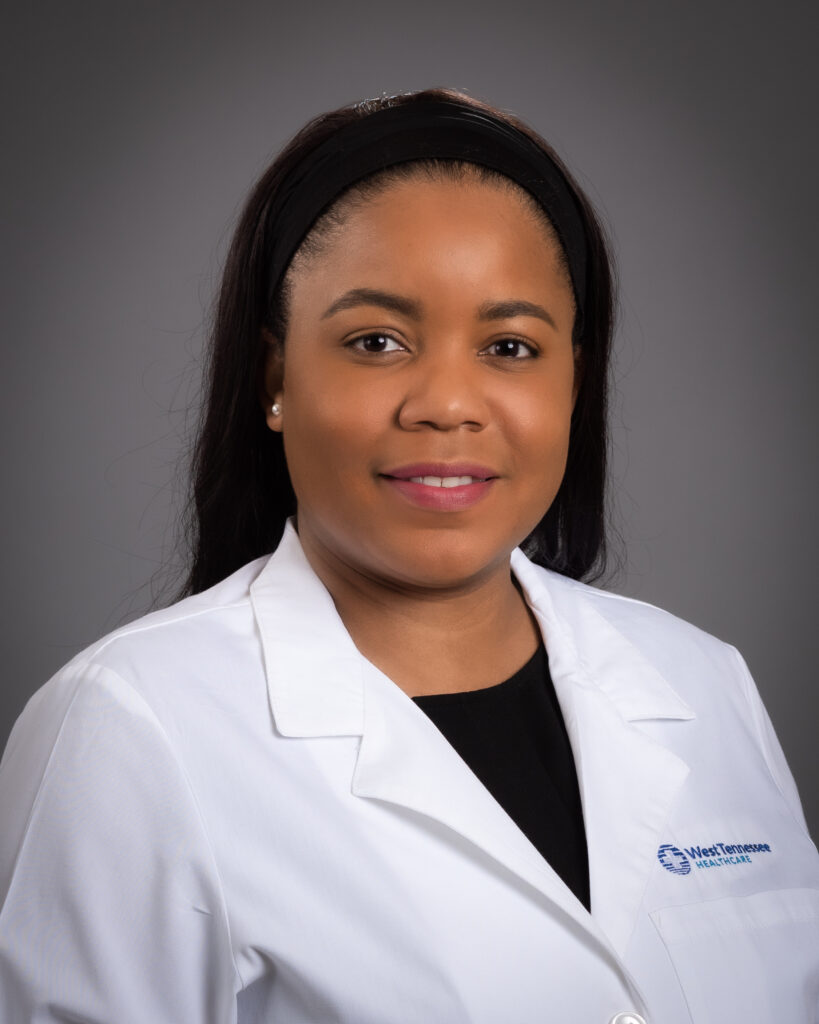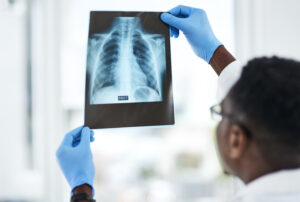How Does COPD Affect the Lungs?
Chronic obstructive pulmonary disease or COPD, is the 6th overall leading cause of death in the United States.
In the US, COPD affects nearly 16 million adults and many more who do not know they have it. More than half of those diagnosed are women. Anyone can develop COPD, but people aged 40 or older, and current or former smokers have a higher risk of developing the disease. It is a chronic condition that progressively worsens over time and is a major cause of disability.
“The lungs are where the blood picks up oxygen to deliver throughout the body and disposes of carbon dioxide,” said Dr. Sahai Donaldson, a pulmonologist with West Tennessee Medical Group “COPD affects this process and as a result, you feel short of breath.”
What is COPD?

COPD refers to a large group of lung diseases that slowly damage the lungs and affect how you breathe.
Symptoms include:
- Emphysema
- Chronic Bronchitis
- Asthma (in some cases)
Most people who have COPD have a mixture of both emphysema and chronic bronchitis in different proportions, and how serious each condition is varies from person to person.

“In chronic bronchitis, the bronchial tubes become inflamed and narrowed. They tend to become clogged with mucus. In contrast to emphysema where the air sacs become permanently enlarged, affecting the ability of the lungs to pick up oxygen and expel carbon dioxide” said Dr. Donaldson. “This reduces airflow through the bronchial tubes, a condition called airway obstruction, making it difficult to move air in and out of the lungs.”
The inflammation of the bronchial tubes makes the nerves in the lungs very sensitive. In response to irritation, the body forces air through the airways by a rapid and strong contraction of the muscles of respiration, basically a cough. The rapid movement of air in the breathing tubes helps remove mucus from the lungs into the throat. People with COPD often cough a great deal in the morning after a large amount of mucus has built up overnight.
With COPD, less air flows through the airways. The airways and tiny air sacs in the lungs lose their ability to stretch and shrink back. The airways make more mucus than usual, which can clog them and block airflow.
Symptoms of COPD
Not everyone has the same symptoms. COPD can cause coughing that produces large amounts of mucus. It can also cause breathing problems, shortness of breath, chest tightness, and other symptoms. Because COPD is a progressive disease, its symptoms often develop slowly but worsen over time and can limit your ability to do routine activities.
“How severe your symptoms are depends on how damaged your lungs are,” said Dr. Donaldson. “Serious COPD may prevent you from doing even basic activities such as walking, cooking or taking care of yourself.”
Most cases are caused by cigarette smoking. Compared to never-smokers, COPD rates are seven times higher among current smokers and five times higher among former smokers.
However, as many as one out of four Americans with COPD never smoked cigarettes.
Diagnosis & Treatment

If your doctor suspects you have COPD, they will get your medical history, do a physical exam and perform a lung function test.
Although there is no cure, treatments and lifestyle changes such as quitting smoking can help you feel better, stay more active, and slow the progress of the disease. Treatment requires a careful and thorough exam by a doctor, usually a pulmonologist. Based on the severity of the condition, treatment can include medication, moderate exercise, pulmonary rehabilitation, smoking cessation and supplemental oxygen.
Once you start treatment, your pulmonologist will continue to do imaging and lung function tests to determine the rate at which your COPD is progressing. The progression of the disease is influenced by factors such as smoking, environmental exposures, and family history of COPD. Do not ignore your symptoms and wait until your cough or shortness of breath stops you from doing the things you enjoy. Talk to your healthcare provider about changes in your breathing and activity.
West Tennessee Medical Group has specialists to help diagnose and treat COPD. Schedule an appointment with one of our pulmonologists.
